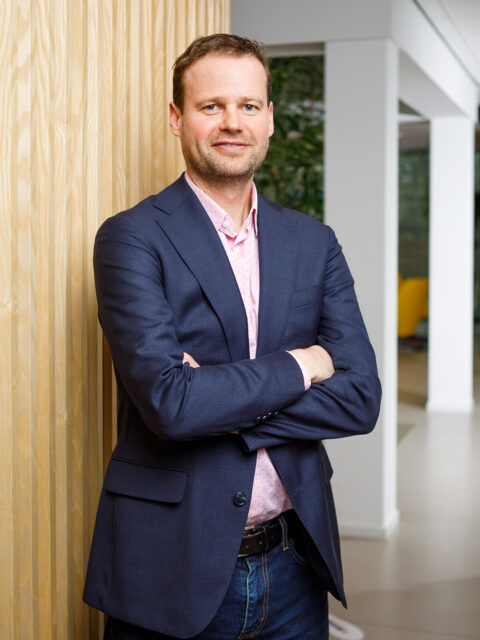Kolb conquers Europe from Brabant

A notable event occurred in the international chemicals sector in the early 1990s. In its search for a location to expand its European activities from, the Swiss company KOLB opted for Brabant instead of Marseille, Tarragona, Rotterdam and Antwerp. And in 2009 the manufacturer of raw materials for detergents, industrial cleaning products and cosmetics launched its third reactor on the Moerdijk industrial estate.

The alkoxylates or non-ionic tensides that KOLB manufactures serve as a raw material for hundreds of industrial and consumer products, including almost all the well-known European detergent and cosmetics brands. When the company started operations in Brabant in 1992, production of end-product stood at 30,000 tons with a staff complement of a mere 20. Gradual expansion and optimization resulted in production reaching 60,000 tons in 2005 with a staff of 35. The commissioning 2 new reactors has now tripled these figures and, with a maximum production of 200.000 tons, KOLB Nederland B.V. today accounts for a significant proportion of the European market. About 7 percent of the company’s production consists of packaged products that are shipped globally by container.
The Brabant location involved an investment of around 75 million guilders at the time. KOLB had a choice of a variety of locations in European cities where a conducive production environment was catered to by the presence of major chemical companies. These selfsame conditions existed at the Moerdijk industrial estate thanks to the presence of, amongst others, Shell. It is from Shell that KOLB obtains – through a pipeline stretching almost two kilometers – ethylene oxide, which is essential in its manufacturing process.
However, the choice of Moerdijk in Brabant was also prompted by the fact that we could have our own site here. Our grounds extend for over eight hectares here, allowing us to expand even further in the future.
Mark Bramer - KOLB Nederland
Other reasons why KOLB settled on Brabant include its strategic location with respect to the international ports of Rotterdam and Antwerp and the excellent road and rail links. “And last but not least, the availability of personnel with adequate training,” Mark Bramer adds. KOLB trains, in cooperation with the Markiezaat College in Bergen op Zoom, its own operators. The company has been in continuous operation since 2010.
Thanks to the new reactors, KOLB has succeeded in killing two birds with one stone. The more effective working method and expansion of the shift teams means that production has increased by close on 140.000 tons without upping the company’s natural gas consumption, while the large amount of heat released is stored for later reuse. This means that the new reactors are almost energy-neutral.

The Swiss holding company KOLB AG is now fully owned by the listed Malaysian company KLK-Oleo, a plantation company with a turnover in the region of 2.5 billion euros and 23,000 employees. It has evolved into a leading player in the field of fatty alcohol, for which vegetable oils are a major ingredient. This has resulted in a number of promising options for KOLB, and the company now has a biological raw material available for its own production that is also cheaper than comparable materials derived from fossil fuels. The Malaysian parent company has also opened doors for KOLB to the Asian market. Mark Bramer expects that the takeover by KLK-Oleo will result in KOLB Nederland becoming a centre of growth, with any company expansion being implemented at the Moerdijk industrial estate. “That will once again confirm that opting for Brabant and this plot were excellent choices at the time.”
Contact us




